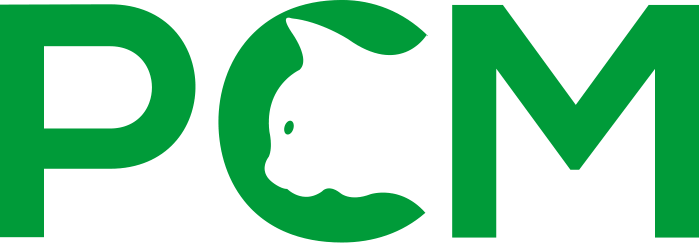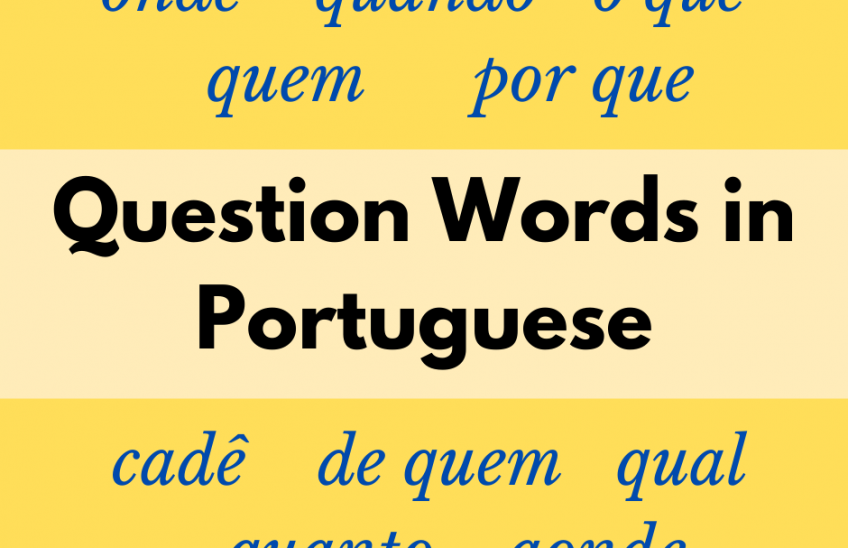Oi! Tudo bem?
It’s very important to know how to ask questions so you can hold a conversation, collect more information or get to know another person better. When asking “yes or no” questions in Portuguese, we should remember that the word order will be the same as the positive sentences.
SUBJECT + VERB + COMPLEMENT
For example:
- Você é brasileiro (positive) – You are Brazilian
Você é brasileiro? (interrogative) – Are you Brazilian? - Eles moram aqui (positive) – They live here
Eles moram aqui? (interrogative) – Do they live here? - Nós já vimos esse filme (positive) – We have seen this film
Nós já vimos esse filme? (interrogative) – Have we seen this film?
As you can see, we don’t use auxiliaries such as “do, does, did, have…” to ask questions, that’s why the intonation is quite important and you need to make sure you sound like you are asking something, not stating a fact.
When asking open questions and using questions words (who, where, when, what….), the word order will be the same, but we place the pronoun before the subject. Sometimes we can place the question word at the end to emphasise the question.
QUESTION WORD + SUBJECT + VERB + COMPLEMENT
SUBJECT + VERB + QUESTION WORD (For emphasis) + COMPLEMENT
Let’s learn some question words in Portuguese:
-
O que (What)
We use it to receive an explanation or a definition, or when there’s an unlimited set of answers
E.g. O que você comeu ontem? (What did you eat yesterday?) – There could be many possible answers for this.
O que vocês gostam de fazer em Melbourne? (What do you like to do in Melbourne?) – Many possible answers
O que significa “arrumar”? (What does “arrumar” mean?) – Asking to receive a definition
O que ele fez de errado? (What did he do wrong?) – Asking to receive an explanation.
O que ele está bebendo? (What is he drinking?)We can also use “o que” at the end of a question to emphasise it. However, we change it to “o quê” if it comes right before a question mark.
E.g. Você comeu o que ontem?
Vocês gostam de fazer o que em Melbourne?
Ele fez o que de errado?
Ele está bebendo o quê?We can also omit “o” from “o que” in our questions. We also use just “que” when it’s followed by a noun:
E.g. Que é isso? OR O que é isso? (What is this?)
Que tipo de música você gosta? (What type of music do you like?) – Que + noun (tipo)
Que esporte é esse? (What sport is this?) – Que + noun (esporte) -
Qual, Quais (What. Which)
We use it with a limited set of answers and when you usually have to choose one thing. “Quais” is the plural form.
E.g. Qual é o seu esporte favorito? (What’s your favourite sport?) – We usually pick one choice
Qual música você está escutando? (What song are you listening to?) – There’s only one possible answer. We could also ask “Que música você está escutando?” because “que” and “qual” are followed by a noun (música).
Qual é o seu nome? (What’s your name?) – There’s only one answer
Quais lugares você já visitou? (What places have you visited?) – There’s a limited set of answers. We could also say “Que lugares você já visitou?” as it is also followed by a noun (lugares) -
Onde, Aonde. De onde, Cadê (Where, Where to, Where from, Where is)
We use these options when talking about places and locations.
Onde: When we don’t use verbs that show movement, such as “trabalhar, comer, estudar, amar…” (to work, to eat, to study, to love…)
Onde você trabalha? (Where do you work?) OR Você trabalha onde? (to emphasise the question)
Onde eles moram? (Where do they live?) OR Eles moram onde? (to emphasise the question)Aonde: When we use verbs that express movement, such as “ir, vir, levar, viajar…” (to go, to come, to take, to travel…)
Aonde você vai? (Where are you going?) – it shows movement. We can also say “Você vai aonde?” to emphasise the question
Aonde eles viajaram? (Where did they travel?) – it shows movement
Aonde vocês foram ontem? (Where did you go yesterday?) – it shows movementDe onde: We use it when we ask about nationality or origin
De onde você é? OR Você é de onde? (Where are you from?)
De onde esse perfurme é? OR Esse perfume é de onde? (Where is this perfume from?)
De onde vem esse barulho? OR Esse barulho vem de onde? (Where is this noise coming from?)Cadê: We use it when we want to know where something can be found. It means the same as “onde está” (where is) so it doesn’t need to come with a verb.
Cadê meu celular? OR Onde está meu celular? (Where’s my phone? )
Cadê você? OR Onde você está? (Where are you?)
Cadê todo mundo? OR Onde está todo mundo? (Where’s everybody?) -
Por que (Why)
We use it when we want to know the reason why something happened. We need to change it to “por quê” if we place it right before a question mark, or when we ask “why?” by itself.
Por que você estuda português? OR Você estuda português por quê? (Why do you study Portuguese?)
Por que eles estão aqui? OR Eles estão aqui por quê? (Why are they here?)
Por você não chega mais perto? (Why don’t you come closer?)
Por quê? (Why?) -
Quando (When)
We use it to ask about the time
Quando você vem aqui? OR Você vem aqui quando? (When are you coming here?)
Quando ela vai embora? OR Ela vai embora quando? (When is she leaving?)
Quando vocês chegaram? OR Vocês chegaram quando? (When did you arrive?) -
Quem (Who)
We use it to ask about people
Quem é ela? (Who is she?)
Quem você vai ver hoje? (Who are you seeing today?)
Quem estava aqui antes? (Who was here before?) -
Quanto, Quanta, Quantos, Quantas (How much, How many)
We use them to ask about quantity or price.
Quanto custa a blusa? (How much is the shirt?)
Quanto você pesa? (How much do you weigh?)
Quantos anos você tem? (How old are you?)
Quantas pessoas você conhece? (How many people do you know?)
Quanta coisa eu posso levar? (How many things can I take?) -
Como (How)
We use it to talk about manner
Como você está? (How are you?)
Como você vai para o trabalho? (How do you go to work?)
Como eles se conheceram? (How did they meet?) -
Com que frequência (How often)
We use it to talk about frequency
Com que frequência você vem aqui? (How often do you come here?)
Com que frequência as crianças estudam inglês? (How often do the kids study English?)
Com que frequência as pessoas devem se exercitar? (How often should people exercise?) -
De quem (Whose)
We use it to talk about possessions and belongings
De quem é essa blusa? (Whose shirt is this?)
De quem é esse telefone? (Whose phone is this?)
De quem são esses livros? (Whose books are these?)Now that you’ve learnt some question words, let’s practise!
1. __________________ custa a maçã? (price)
2.__________________ a senhora prefere o filé? (manner)
3.__________________ é a caipirinha? É sua? (possession)
4.__________________ são seus hobbies? (limited set of answers)
5.__________________ ela quer morar no Brasil? (reason)
6.__________________ é o presidente do Brasil? (people)
7.__________________ vocês estão fazendo aqui? (explanation)
8.__________________ eles vão amanhã? (location)
9.__________________ o José? (location)
10.__________________ você é? (nationality)
11.__________________ horas ela vai chegar? (what + a noun)
12.__________________ é seu aniversário? (time)
13.__________________ é sua profissão? (one possible answer)
14.__________________ anos você tem? (quantity)
Answers
- Quanto; 2. Como; 3. De quem; 4. Quais; 5. Por que; 6. Quem; 7. O que; 8.Aonde; 9. Cadê; 10. De onde; 11. Que; 12. Quando; 13. Qual; 14.Quantos.Ask some questions in the comments section and we’ll check them for you! And don’t forget to follow us on instagram @portuguese_classes_melbourneAté mais!
Luciana Veloso

